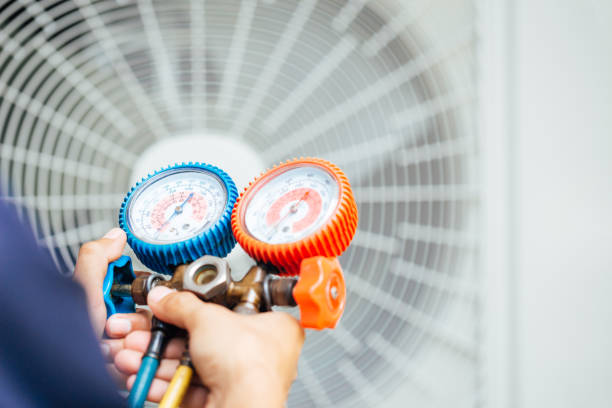Have you ever wondered what exactly the difference between heating and cooling is? Some people refer to these systems as separate entities, while others claim they’re simply two parts of the same machine. There’s no denying that they work together to provide comfort and control throughout your home, but how do they interact? And how do you know which one you need? The following guide to heating and cooling in Plant City FL will help you understand these systems better, so you can make the right decision for your home.
The climate in Plant City FL
The heating and cooling Plant City FL in Plant City is humid subtropical, with hot summers and mild winters. The average summer temperature is 87 degrees Fahrenheit, while the average winter temperature is around 58 degrees Fahrenheit. There are 50 wet days per year on average. The region gets an average of 36 inches of rain each year.
The types of heating and cooling systems
When it comes to heating and cooling, there are a number of systems that can be used, including: Central air conditioners: Central air conditioners are a very common type of heating and air conditioning system. They work by pulling hot air from the house into the outside unit, which will then cool it before returning it inside. This is a great option if you live in an area with mild weather. Window units: If you live somewhere that doesn’t get too hot or cold but is just uncomfortable at times, window units may be your best bet. These types of units attach right onto your windows so they don’t take up any space inside your home, but still offer great levels of heat or cold depending on the season.
The benefits of a heating and cooling system
A heating and cooling system can make your life so much easier. You’ll be able to control the temperature throughout your home, which will help keep everyone more comfortable year round. If you’re living somewhere that gets a lot of cold weather, then this is especially important because it will allow you to turn the heat on when it’s freezing outside and not worry about wasting energy. Plus, if your air conditioner breaks down during the summer months, then you won’t be sweating all day long because there is no better feeling than coming into a nice cool home at the end of a long day.
The cost of a heating and cooling system
One of the most expensive aspects of installing a heating and cooling system is the installation itself. Installation costs will vary depending on the size of your home, type of heating and cooling system being installed, as well as other factors. The general rule of thumb for installation is about for a small home, for an average-sized home and for a larger home. In addition to installation costs, there are also ongoing maintenance fees that may apply if you have an HVAC system with a service contract. This fee may be anywhere from per month depending on your agreement with the company providing maintenance
services. An annual inspection fee may also apply if you’re paying a flat fee rather than an hourly rate for maintenance services.
The maintenance of a heating and cooling system
In the event that something goes wrong with your system, it is always best to call a professional. However, there are a few things you can do to try and maintain it yourself. First, clean the outdoor unit by removing debris from its condenser coil. This will help with drainage. Second, check for any clogs in the drain line by opening the air intake valve and checking for water bubbles or dirt at the bottom of the unit. Third, if no best hvac company Plant City FL are found, unblock any blockages within six feet of the condensers; this should be done periodically during summer months when humidity levels increase.
Fourth, make sure any filters on your indoor unit are clean and free of debris. Have you ever wondered what exactly the difference between heating and cooling is? Some people refer to these systems as separate entities, while others claim they’re simply two parts of the same machine. There’s no denying that they work together to provide comfort and control throughout your home, but how do they interact? And how do you know which one you need?




